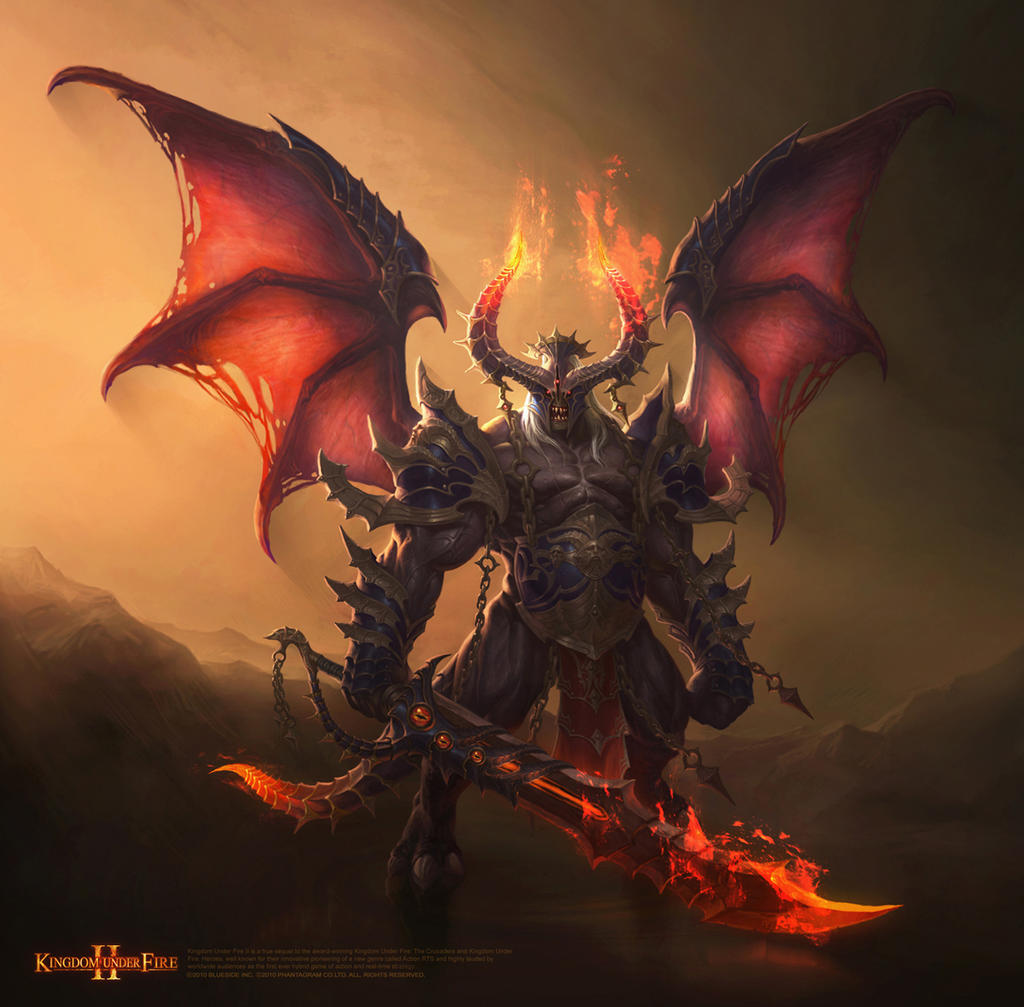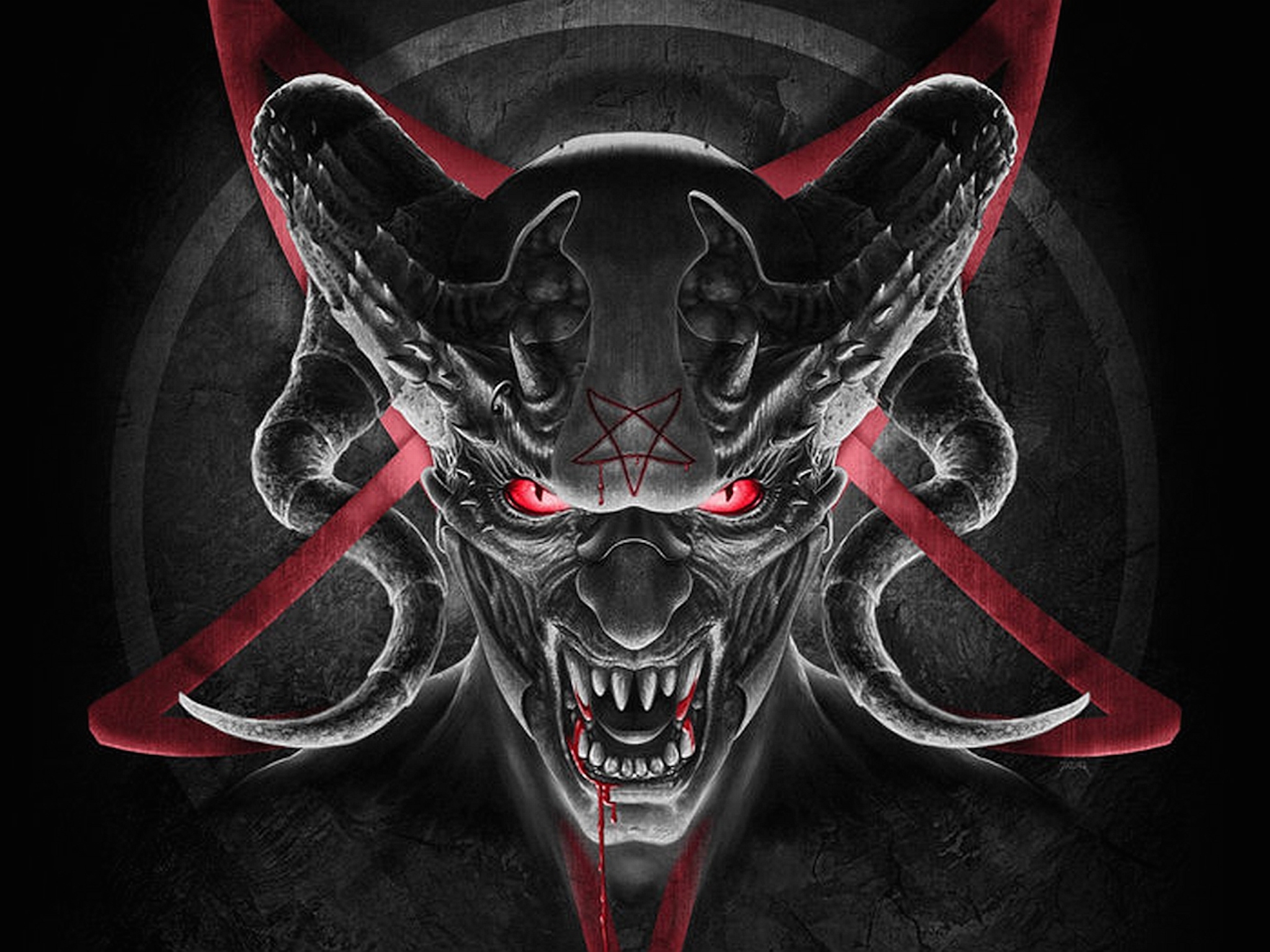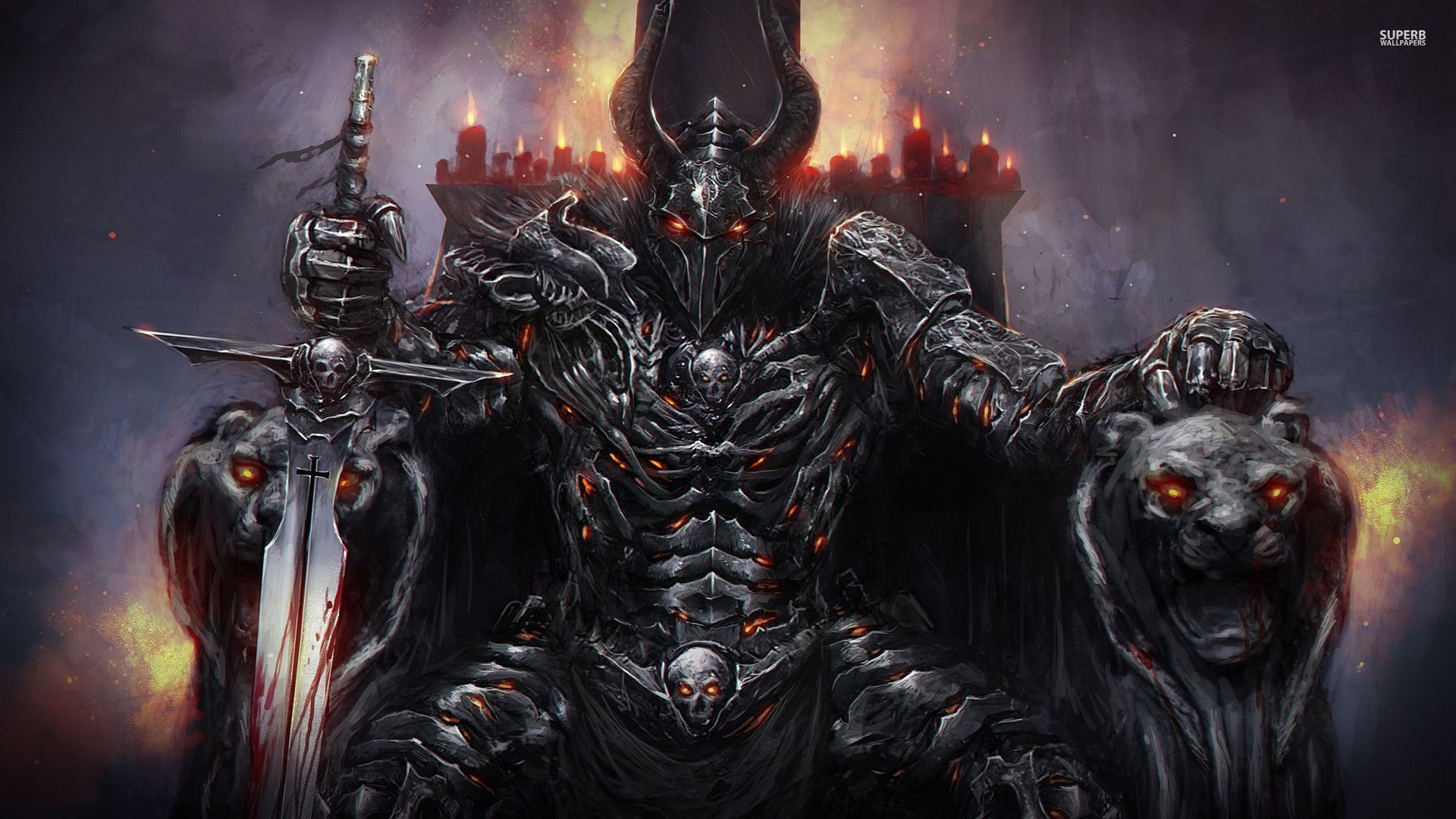Demon Boy Saga Update
Have you ever felt a bit lost when people talk about 'demons' and 'devils'? It’s a common thing, really. Someone might even, you know, poke fun at you for using the words as if they were the same. It happened to a friend, who was just trying to talk about something, and got quite a bit of chatter about it. This kind of mix-up is pretty widespread, and it can make it tough to truly grasp stories or discussions that involve these powerful figures.
So, what's the big deal with the demon boy saga update that everyone seems to be talking about? Well, it's not just about a specific story, but more about getting our terms straight, especially when we hear tales involving these types of beings. This update, in a way, helps us clear up some of the fog around these concepts, which is pretty useful for anyone who enjoys supernatural lore or even just wants to understand common cultural references better. It's about bringing a little more light to some rather dark corners of language, wouldn't you say?
Today, we're going to dig into what makes a 'demon' different from a 'devil,' drawing on some really helpful insights. We’ll look at how these terms are typically used in Western traditions, especially in stories and religious texts. This clarity, honestly, can change how you view many narratives, including any demon boy saga you might come across. It's truly about getting to the heart of these words and what they truly mean.
- Aishah Sofey New Leaked
- 2 Babies One Fox
- Ifsa Sotwe Turk
- Asianbunnyx Leaks
- Selena Quintanilla Outfits A Timeless Fashion Legacy
Table of Contents
The Core of the Demon Boy Saga Update: What's the Real Story?
Understanding "Demon" vs. "Devil": A Crucial Distinction
From Ancient Lore to Modern Tales: The Many Faces of Demons
The Biblical Narrative: Angels, Influence, and Expulsion
Why This Update Matters for the Demon Boy Saga
Avoiding Misconceptions and Staying Informed
Frequently Asked Questions About Demons and Devils
The Core of the Demon Boy Saga Update: What's the Real Story?
When we talk about a demon boy saga update, it often comes down to getting our definitions right. Many times, people use 'demon' and 'devil' interchangeably, but there's a pretty big difference in how they're traditionally understood, particularly in Western culture. It's a bit like saying 'god' when you really mean 'angel,' you know? They're related, sure, but they definitely aren't the same thing. This distinction is really important for anyone trying to make sense of older stories or even modern tales that feature these kinds of beings. It truly makes a difference in how you interpret the actions and roles within any narrative.
Understanding "Demon" vs. "Devil": A Crucial Distinction
Based on what we typically hear, the 'Devil' is, in some respects, the ultimate source of evil, or you could even say the 'god' of the bad side. It's the top-tier, most wicked presence imaginable. A 'demon,' on the other hand, is generally seen as a being that works for the Devil. They are, in a way, the agents or servants carrying out the Devil's plans. So, while both are certainly on the side of mischief, their positions in the hierarchy are quite distinct. This little detail is pretty vital for grasping the full picture.
Interestingly, the word 'demon' doesn't always carry a strong religious weight. It can, in fact, refer to any evil, non-natural thing, or even a supernatural evil presence. The scope of this word is actually very wide. You could, for instance, say someone studied English for ten hours a day 'like a demon,' meaning they were incredibly dedicated and intense. It's just a way of describing extreme focus, which is quite different from a malevolent spirit, wouldn't you say? So, it's not always about something spooky; sometimes, it's about intense effort.
- Lamar Jackson Injury History
- Bomb Threat At Atlanta Airport Today
- Post Nirvana
- Is Emily Compagno Married
- Thanos Actor Age Squid Game
The word 'devil,' too, can have some other, rather surprising uses. Sometimes, it's used to describe someone who is overly picky or critical about something. Imagine someone who finds fault with every little detail; you might hear them called a 'devil' in that context. This is, in a way, a much more casual use of the word, far removed from its grand, terrifying religious meaning. It just shows how language can twist and turn, giving words multiple layers of meaning, which is pretty fascinating, honestly.
From Ancient Lore to Modern Tales: The Many Faces of Demons
It's worth noting that the term 'Demon' has roots in Greek, where it was 'Daimon.' What's really curious is that in ancient Greek thought, a 'Daimon' didn't necessarily mean something evil; it could just refer to a divine being or a guiding spirit, sometimes even a good one. This is, in some respects, a complete flip from how we usually think of demons today. It just goes to show how meanings can change dramatically over time and across different cultures, doesn't it? It's a pretty interesting linguistic journey.
When we look at stories, movies, and books, you'll often see words like 'Satan,' 'Lucifer,' 'demon,' 'evil,' and 'ghost' thrown around. It can get a bit confusing trying to figure out what each one truly means in context. For example, 'Satan' and 'Lucifer' are often specific names for the Devil figure, while 'demon' is a broader category for those working for him. 'Evil' is a general concept, and 'ghost' is usually a spirit of the dead, which is quite different from a demon. So, understanding these distinctions is pretty key to following the plot, you know?
These terms, you see, are quite important for setting the tone and understanding the forces at play in any story. Whether it's a tale of ancient battles or a modern fantasy, knowing the difference between a high-ranking 'Devil' and a more common 'demon' really helps you grasp the power dynamics. It’s not just about scary creatures; it's about the very structure of good versus bad in a narrative. This, arguably, makes the story richer and more meaningful for the audience, too it's almost like having a secret decoder ring.
The Biblical Narrative: Angels, Influence, and Expulsion
In many traditional accounts, particularly in biblical texts, there's a clear story about how these beings came to be. The Bible, for instance, actually identifies the very first angel who, in a way, transformed himself into a demon. This was a pivotal moment, and it tells us a lot about the origin of these malevolent forces. It wasn't always this way, you see; there was a shift, a fall from grace, which is pretty significant in understanding their nature. This origin story is a cornerstone for many beliefs about demons.
Following this initial change, other angels, apparently, chose to follow suit, especially during Noah's time. This means the ranks of these beings grew, creating a whole host of entities that could, and often would, influence people. It wasn't just one rogue being; it became a collective. So, when we hear about how the Devil and demons might influence people, it often traces back to these early narratives. It’s a pretty foundational concept for understanding spiritual battles, in some respects.
The concept of 'spiritism' and 'demon possession' also comes up quite a bit in these discussions. These are, you know, ways in which people might experience the direct influence of these entities. The narratives often talk about how one might avoid the Devil's influence and find protection. It's not just about acknowledging their existence but also about practical steps within a spiritual framework. This is a very real concern for many who believe in these forces, and it’s a significant part of the overall lore.
One of the most powerful stories that illustrates this is when Jesus' disciples, actually, couldn't expel a demon from a boy. It was a moment that showed their limits. But then, Jesus himself stepped in, and the crowd was truly amazed as he showed just how powerful faith could be in such situations. This particular story is a very clear example of a 'demon boy saga' within a religious context, highlighting both the presence of these beings and the power to overcome their influence. It's a pretty impactful tale, honestly.
Why This Update Matters for the Demon Boy Saga
Understanding these distinctions is really important for any demon boy saga update, whether it's a story you're reading or a concept you're trying to grasp. When we know that a 'devil' is a top-tier, ultimate evil, and a 'demon' is more of a worker bee, it changes the whole dynamic of a narrative. It's not just about scary creatures; it's about the hierarchy of evil, and that, you know, can make a story much more complex and intriguing. It helps us see the bigger picture, in a way.
For instance, if a story talks about a 'demon boy,' is it about a boy influenced by a general evil spirit, or is he directly tied to the supreme evil? The nuance matters, and it shapes our expectations for the plot and the characters involved. This clarity, honestly, helps us appreciate the depth of the storytelling and the specific challenges faced by the characters. It's pretty essential for truly getting into the heart of any saga, really.
Precision in language is a powerful thing, especially when we're talking about ancient lore and supernatural tales. It helps us avoid misinterpretations and allows for a richer, more accurate discussion. So, this 'update' isn't just about new information; it's about refining our existing knowledge to better understand the world of these entities. It’s a pretty valuable tool for anyone who enjoys exploring these fascinating topics, you know, and it definitely adds to the overall experience.
Avoiding Misconceptions and Staying Informed
To avoid getting tangled in misunderstandings about these terms, it's always a good idea to remember their traditional meanings. The 'Devil' is typically the big boss of evil, the ultimate adversary, while 'demons' are his agents, carrying out his will. This basic rule of thumb can save you a lot of confusion, especially when you're watching a movie or reading a book where these characters appear. It’s a pretty straightforward way to keep things clear, in short.
When you come across stories involving supernatural beings, try to think critically about the roles they play. Is the entity a powerful, overarching evil, or is it a more localized, perhaps even less significant, malevolent spirit? This kind of thinking helps you appreciate the nuances of the narrative and the specific challenges presented. It’s, in a way, about becoming a more discerning audience member, which is pretty cool, honestly.
Staying informed means not just accepting terms at face value but digging a little deeper, like we've done today. Understanding the historical and cultural contexts of words like 'demon' and 'devil' truly enriches your appreciation for the stories they inhabit. It's a bit like learning the background of a famous painting; it just makes the whole experience more meaningful. This kind of knowledge is pretty valuable, and it helps you connect with the material on a deeper level, you know?
For more insights into these fascinating topics, you might find it helpful to explore resources that delve into religious and mythological studies. For instance, a good place to start might be an article on the definition of a demon in mythology, which can offer even more historical context. This kind of background information can truly broaden your perspective, making you more knowledgeable about these complex subjects.
Frequently Asked Questions About Demons and Devils
What is the main difference between a demon and a devil?
Basically, the 'Devil' is considered the supreme evil being, almost like a god of wickedness. A 'demon,' on the other hand, is generally seen as a lesser evil spirit or a servant who works for the Devil. It's a hierarchy, you know, with the Devil at the very top.
Can the word 'demon' be used in a non-religious way?
Yes, absolutely! The word 'demon' can be used to describe someone who is incredibly dedicated or intense about something, like saying 'he worked like a demon.' It doesn't always have a religious or supernatural meaning, which is pretty interesting, honestly.
How do biblical stories portray the influence of demons?
Biblical stories often show demons influencing people through possession or by tempting them to do wrong. There are also accounts of individuals, like Jesus, having the power to cast out these entities, demonstrating a way to overcome their influence. It's a pretty central theme in many of those narratives, you see.
- Yeti Dogs Anchorage
- As The World Caves In Song Meaning
- Discovering The Multitalented Max Minghella An Artistic Journey
- Horses Mating
- Was The Shah Of Iran A Good Leader

Demon by Gpzang on DeviantArt

Evil Demon Wallpaper | Free Demon Downloads

Demon wallpaper | 1920x1080 | #2410